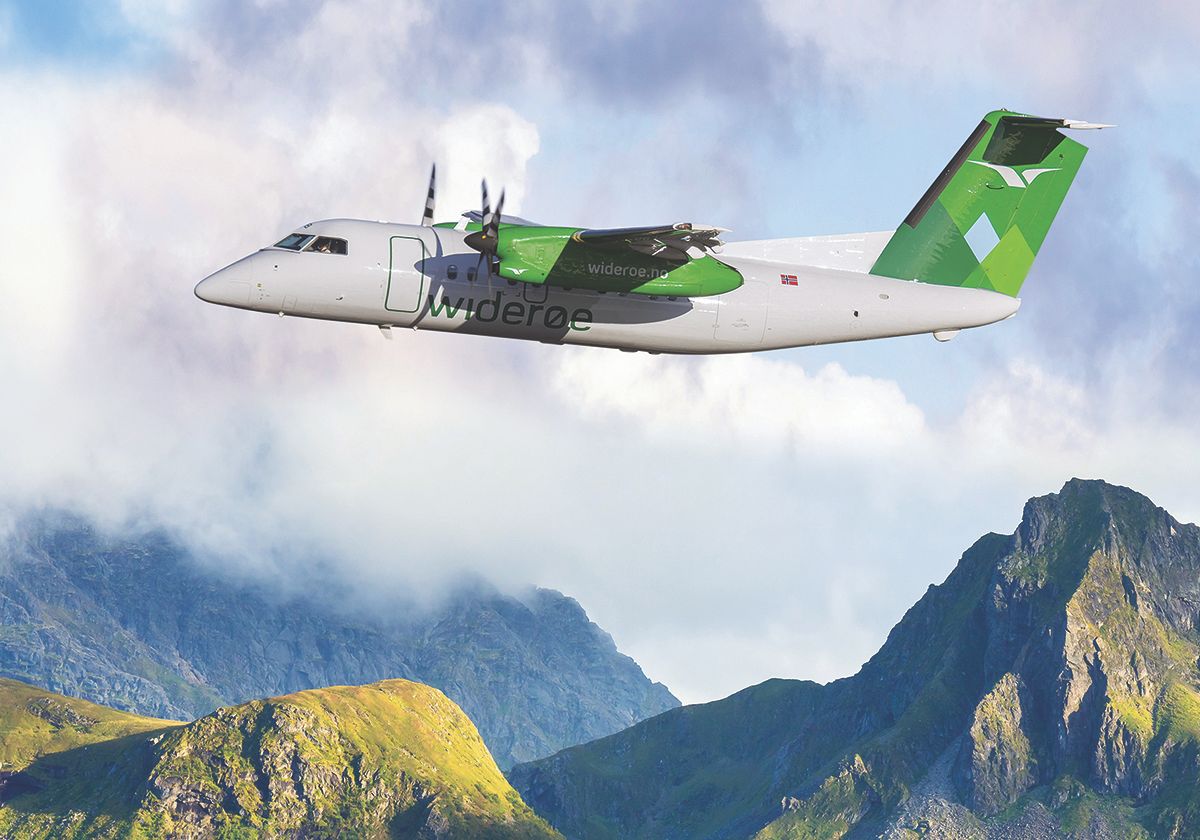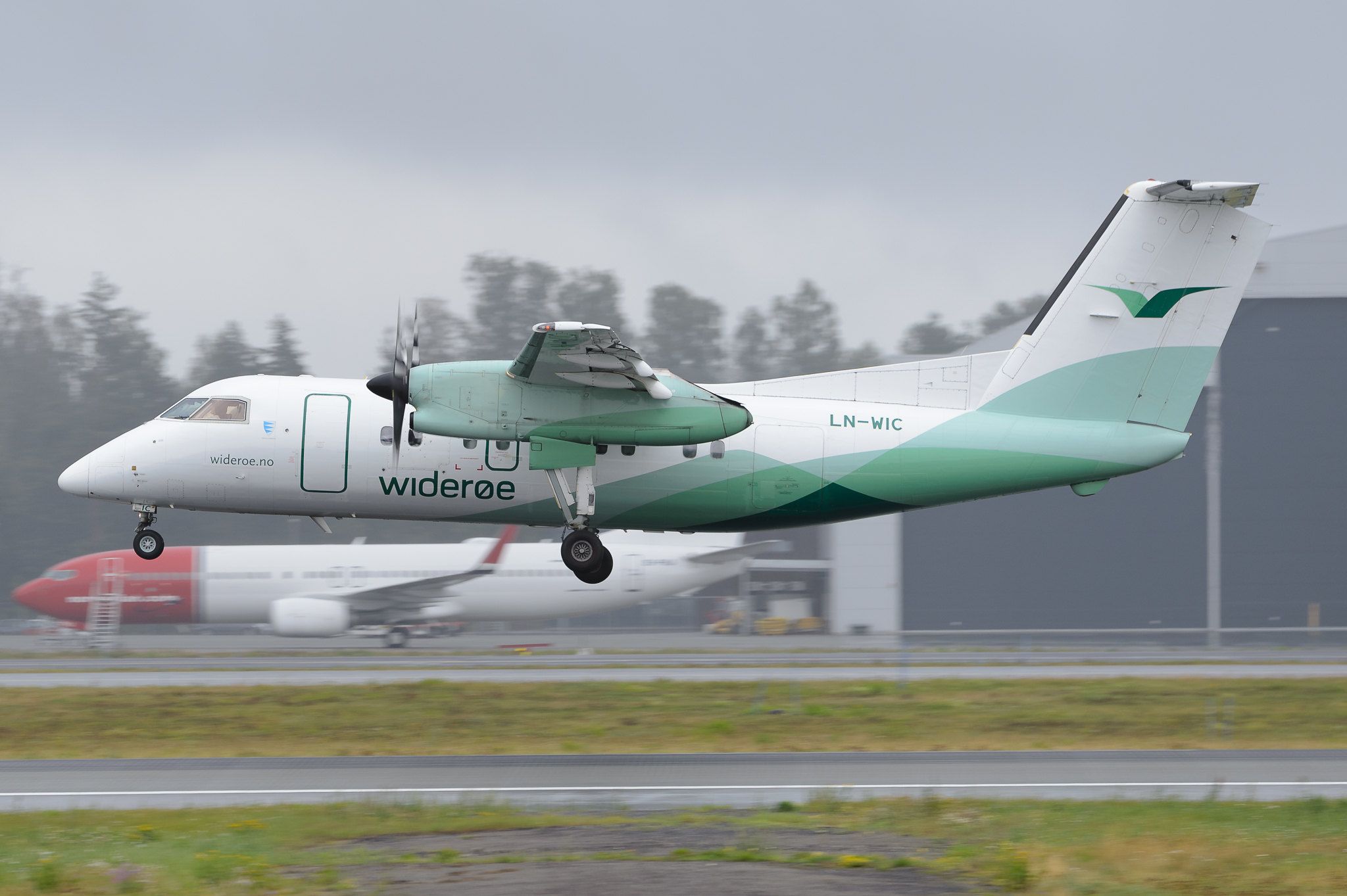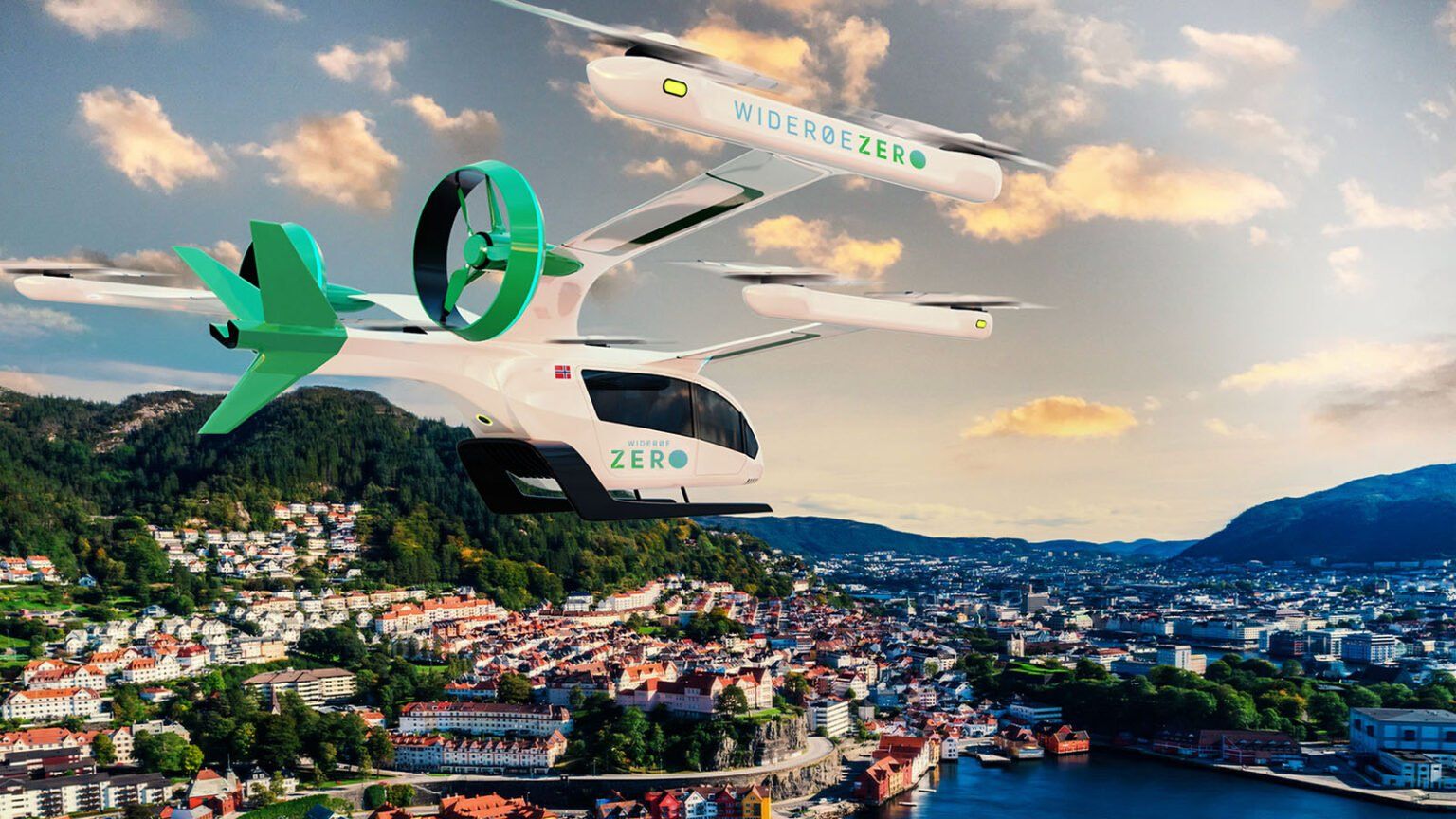Norway's Widerøe may be one of the most innovative airlines when it comes to sustainability, creating several partnership projects and having made plans to introduce its first zero-emissions aircraft by 2026.
However, the technologies needed to achieve decarbonization will not be available at scale for years to come, and Scandinavia's busiest regional carrier has people to fly until then, filling an essential societal role in connecting Norway.
Thus, the airline has decided that rather than invest in intermediary aircraft to renew its fleet (a measure employed or anticipated by most airlines to reduce their carbon footprint and reach net-zero by 2050), it will extend the lifespan of the planes it already has. As announced on Wednesday, Widerøe has become the launch customer for De Havilland's new Extended Service Program PLUS program.
Up to 160,000 cycles
The airline has signed up for the service life of at least ten of its Dash 8-100 turboprop aircraft to be extended to 160,000 flight cycles, maintaining options for an additional ten planes. The aircraft previously underwent another extended service program (ESP) that took them from 80,000 to 120,000 flight cycles. Werner Skaue, Director of Aircraft Trading for Widerøe, commented on the agreement,
"Our Dash 8-100 aircraft have proven to be exceptionally valuable assets in our fleet and once again we are very pleased to work with De Havilland Canada to extend their service life. (...) The Program is vital to bridge the transition between conventional and new technology, and will ensure continuous service of the Norwegian STOL network until zero emission technology is available for entry into service."
An industry first
Canadian aerospace company De Havilland says that its new ESP PLUS is the result of several structural and engineering analyses utilizing fatigue and stress test data from Dash 8-100 aircraft. It has also been informed by research from the current ESP program launched in 2009 - also with Widerøe as the initial customer. Robert Mobilio, Vice President of Engineering at De Havilland Canada, said,
"Combined, our two Extended Service Programs add another 30 to 40+ years to the operational life of Dash 8-100 aircraft – that's double the original service life of the aircraft. This is undeniably an industry first that reinforces De Havilland Canada's long heritage of building aircraft that stand the test of time and provide exceptional value to owners, operators and the communities that rely on the connectivity they provide."
Widerøe's 20 Dash 8-100 turboprops have now reached an average respectable age of 28.4 years. The oldest is 31.5 years old. A (mostly) faithful De Havilland client, the airline also operates three each of the Dash 8-Q100 and the 8-Q200, as well as four 8-Q400 and ten 8-Q500s. Rounding out the Widerøe fleet are three Embraer ERJ 190-E2 jets.



